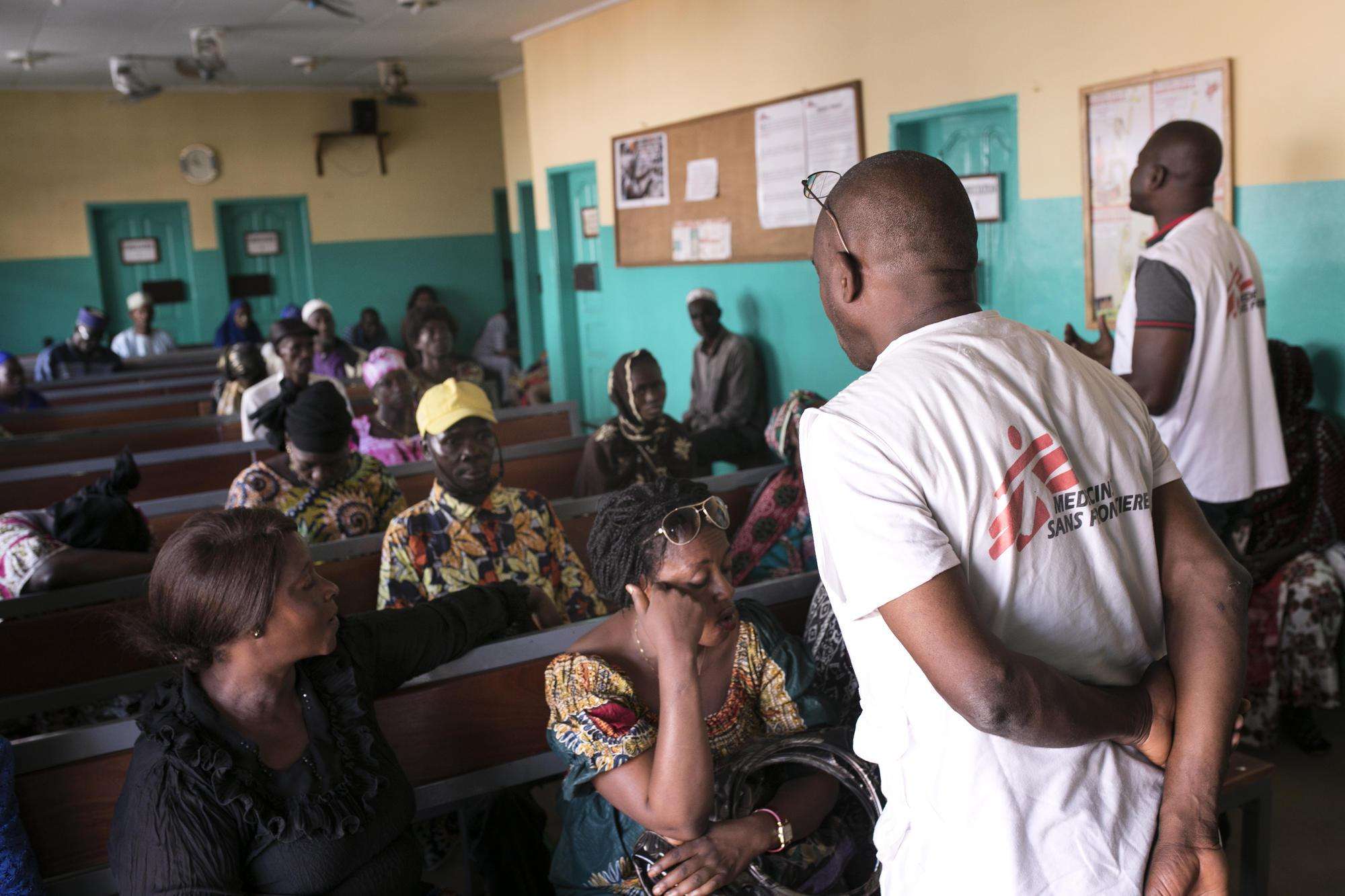US pharmaceutical corporation Gilead hasn’t followed through on its “access initiative,” leaving people with HIV unable to access a vital drug to treat a deadly and painful brain infection
NEW YORK/DELHI/GENEVA, JUNE 27, 2019—Pharmaceutical corporation Gilead Sciences has failed to deliver on promises to make an important drug available to people suffering from a life-threatening HIV-related brain infection, the international medical humanitarian organization Doctors Without Borders/Médecins Sans Frontières (MSF) said today. Nearly one year ago, Gilead announced its “access initiative” and promised to lower prices for liposomal amphotericin B (L-AmB), which helps treat cryptococcal meningitis, in 116 developing countries. Gilead has only registered the drug in six of these countries, and, where it is registered, it remains unaffordably priced.
L-AmB is highly effective when used in combination with other medicines to treat cryptococcal meningitis, an infection of the brain, which can result in an agonizing death for people living with HIV. It is the second leading killer of people living with HIV, after tuberculosis (TB).
“Gilead’s announcement to provide this lifesaving drug at a supposed ‘no profit’ price and expedite its registration appears to have been nothing more than a public relations stunt,” said Jessica Burry, MSF’s Access Campaign pharmacist.
Just over a year ago, the drug was recommended by the World Health Organization (WHO) as the preferred treatment over a suboptimal, more toxic treatment (AmB deoxycholate), as the safety benefits and fewer side effects associated with L-AmB could improve treatment outcomes and management in low-resource settings where most cases of cryptococcal meningitis occur. WHO recognized, however, that high prices and a lack of registration of L-AmB make it difficult for people to access this drug in developing countries.
Although US-based Gilead publicized their pledge to reduce the price of the drug to a “no-profit” price of $16.25 per vial in September 2018, L-AmB continues to be priced out of reach in many developing countries. For example, in South Africa, the drug is priced as high as $200 per vial (at least $4,200 per full treatment course). In India, it is priced at $45 per vial (nearly $1,000 per full treatment course). National programs and treatment providers are still unable to purchase the drug at the corporation’s promised price. Meanwhile, Gilead earns billions of dollars each year from global HIV drug sales. In 2018 alone, the corporation reported $14.6 billion in sales globally from HIV drugs.
“The corporation has failed to make good on their promise to do more to help ensure the survival of people living with HIV affected by this deadly disease,” Burry said. “It’s deplorable that they keep dragging their feet at the expense of people’s lives. Gilead must urgently honor its commitment to make L-AmB available for everyone who needs it, and quickly register the drug in high HIV-burden countries.”
Gilead has registered L-AmB in numerous high-income countries where they can charge higher prices for the drug, including the US, where it has been approved for use for more than 20 years. However, contrary to Gilead’s 2018 announcement that it was working to “expand access to (L-AmB) for cryptococcal meningitis in high-burden countries, including expediting registration,” the drug is currently registered in a mere six of the 116 low- or middle-income countries where it should be able to be procured at Gilead’s “no-profit” price. Additionally, only two of these countries are in sub-Saharan Africa—a region where 75 percent of those who die each year of cryptococcal meningitis live.
Gilead has a monopoly on L-AmB. Although this medicine is no longer under patent, the corporation has refused to license its technology and manufacturing methods to potential generic manufacturers, thereby delaying the availability of less expensive products.
“People living with HIV in India today continue to suffer from cryptococcal meningitis just as they did during the height of the global AIDS epidemic nearly two decades ago, even though effective prevention and treatment for the infection exists,” said Dr. Amit Harshana, MSF medical coordinator in India. “It’s unacceptable that people are still dying because the tools to prevent, treat, and cure cryptococcal meningitis are not available where people who have this infection live. Due to Gilead’s inaction to make this drug widely accessible, we are forced to buy the drug on the private market—and will have to continue to do so—at nearly three times the price the corporation announced last year.”
Cryptococcal meningitis kills more than 180,000 people every year and predominantly affects people living with HIV whose immune systems are severely suppressed, which leaves them vulnerable to such deadly HIV-related opportunistic infections. MSF treats the infection in all of its HIV programs, including in the Democratic Republic of Congo, India, Malawi, Myanmar, and South Africa.




